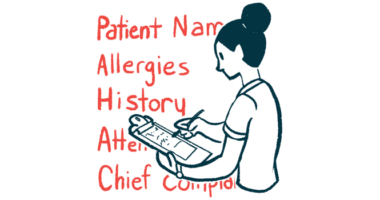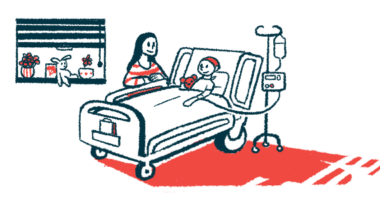Bluebird to sell priority review voucher if FDA approves lovo-cel
Sale would 'provide an important source of non-dilutive capital' for company

If the U.S. Food and Drug Administration (FDA) approves the experimental sickle cell disease (SCD) gene therapy lovotibeglogene autotemcel (lovo-cel), its developer Bluebird Bio plans to sell the voucher it will receive that can be redeemed to speed up the review of a future application of a different therapy.
Bluebird announced it has entered into an advanced agreement to sell the priority review voucher in a deal expected to net $103 million for Bluebird. The company did not specify who will be buying the voucher.
“The potential sale of a priority review voucher would provide an important source of non-dilutive capital for bluebird ahead of the anticipated launch of lovo-cel,” Chris Krawtschuk, Bluebird’s chief financial officer, said in a company press release.
In SCD, mutations in the HBB gene result in the production of an abnormal form of the hemoglobin protein that forms clumps inside red blood cells, deforming them into the sickle shape that gives the disease its name.
Lovo-cel (previously called LentiGlobin, or bb1111) is designed to deliver a modified version of the HBB gene that produces a form of hemoglobin that’s resistant to forming clumps. The therapeutic gene is delivered into a patient’s hematopoietic stem cells (HSCs), which are found in the bone marrow and are responsible for giving rise to new blood cells.
FDA decision expected on lovo-cel by late December
Earlier this year, the FDA agreed to review an application requesting the approval of lovo-cel for SCD patients 12 and older who who have a history of painful vaso-occlusive crises (VOCs). A decision is expected by late December. If the FDA approves the therapy, lovo-cel would become the first gene therapy approved for SCD.
When lovo-cel was being developed, it was granted rare pediatric disease designation, which the FDA gives to incentivize the development of treatments for rare disorders that affect children. One of the main incentives of this designation is that, if the therapy is ultimately approved, its developer receives a voucher that can be used to request a faster FDA review of another therapy application. The voucher can be used by the same developer, or as Bluebird has chosen, be sold to another company.
“As the FDA completes its review of lovo-cel, our team remains confident in the robustness and maturity of our [biologics license application] package for individuals 12 and older with sickle cell disease and looks forward to a regulatory decision by the end of this year,” Krawtschuk said.
Bluebird’s application seeking the approval of lovo-cel is supported by data from a Phase 1/2 clinical trial called HGB-206 (NCT02140554), which tested the therapy in 36 patients ages 12 to 50. The application also included data from the ongoing Phase 3 HGB-210 trial (NCT04293185), which is still recruiting patients at several sites in the U.S.







